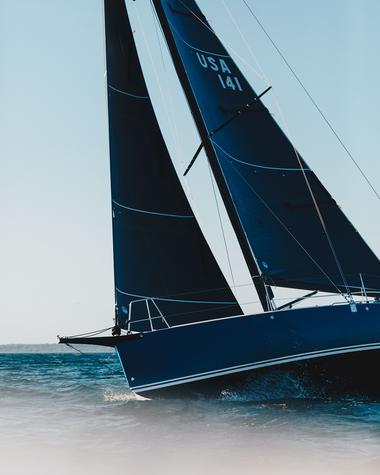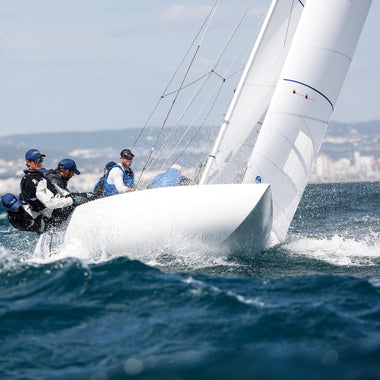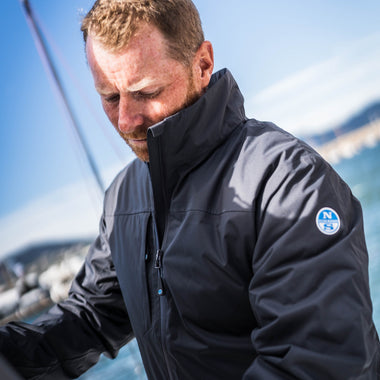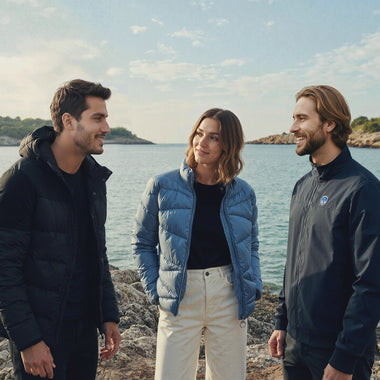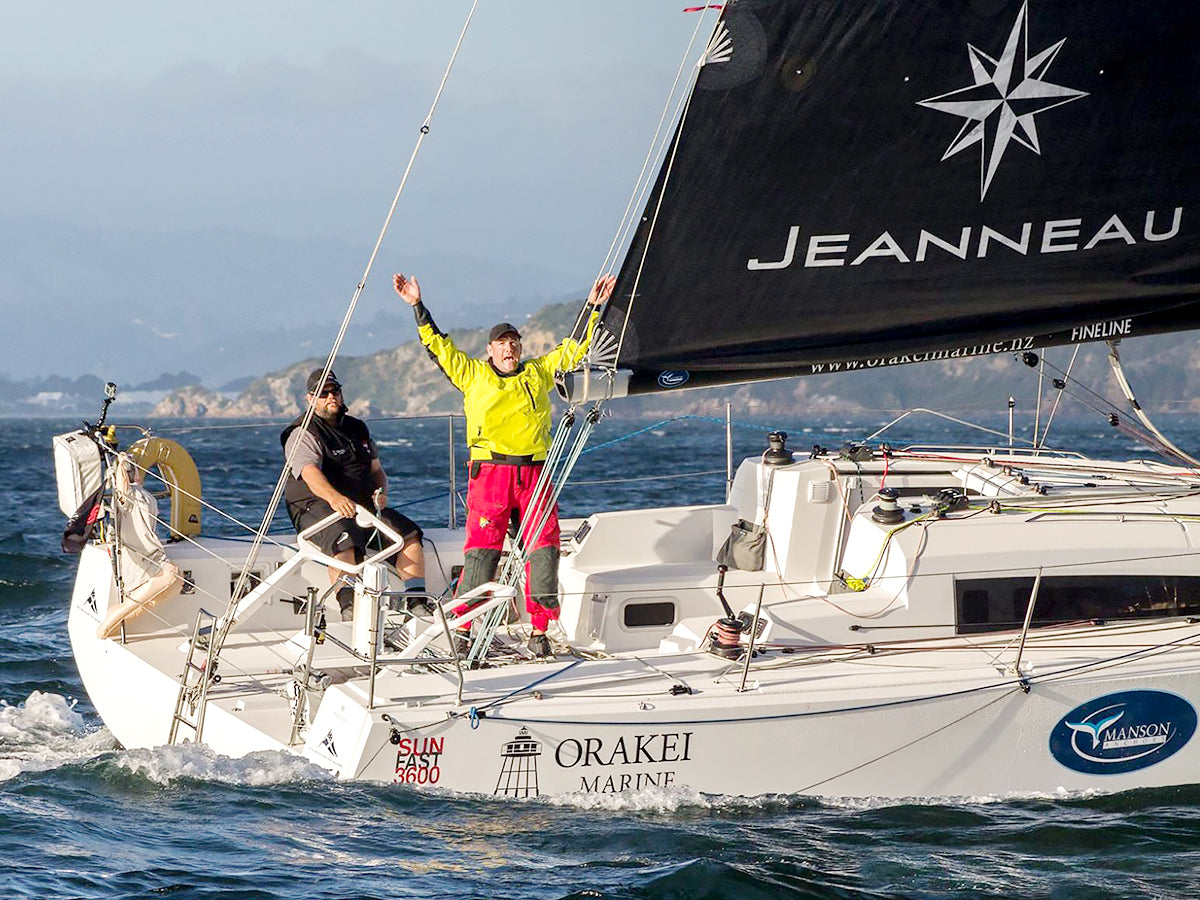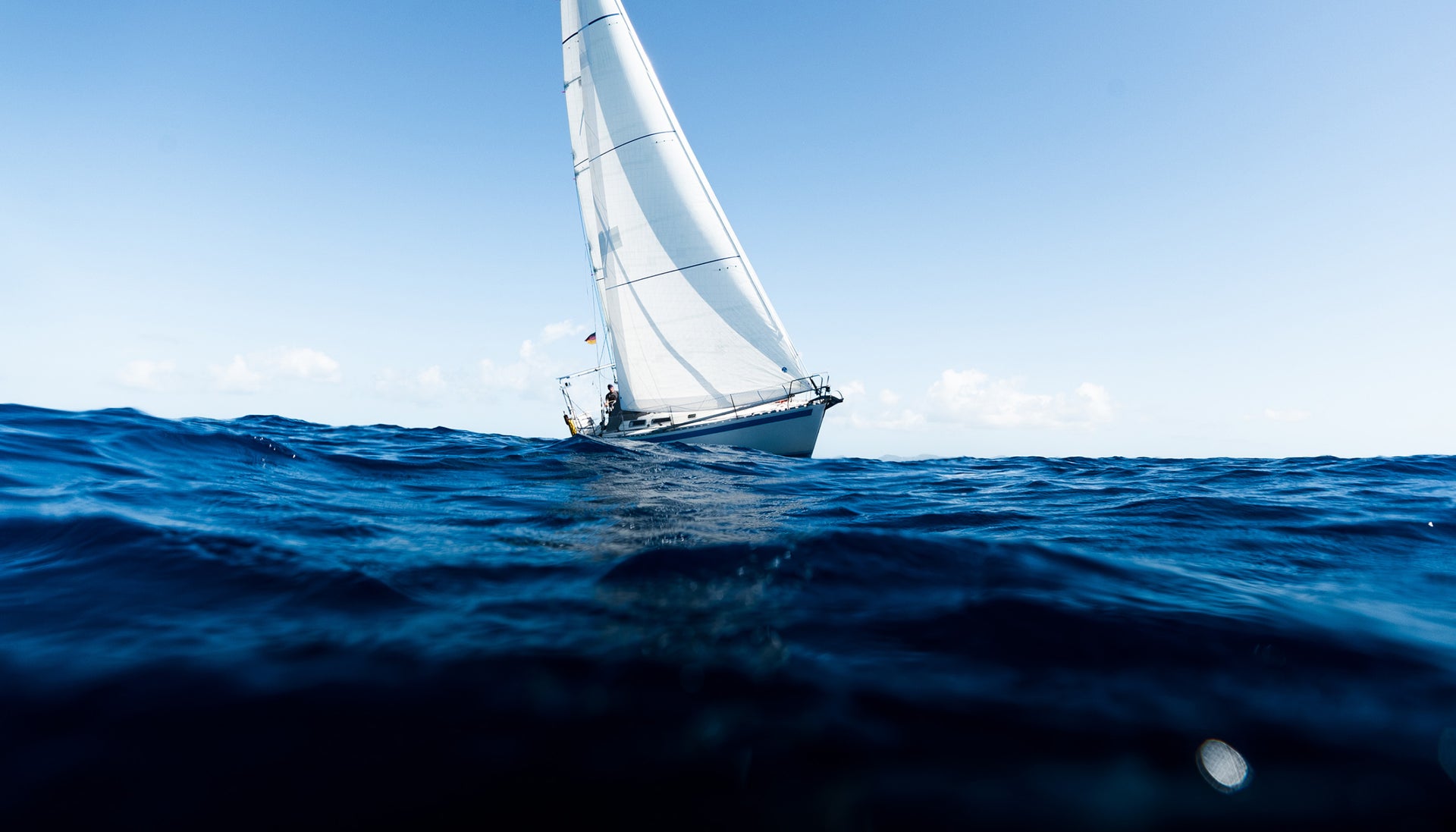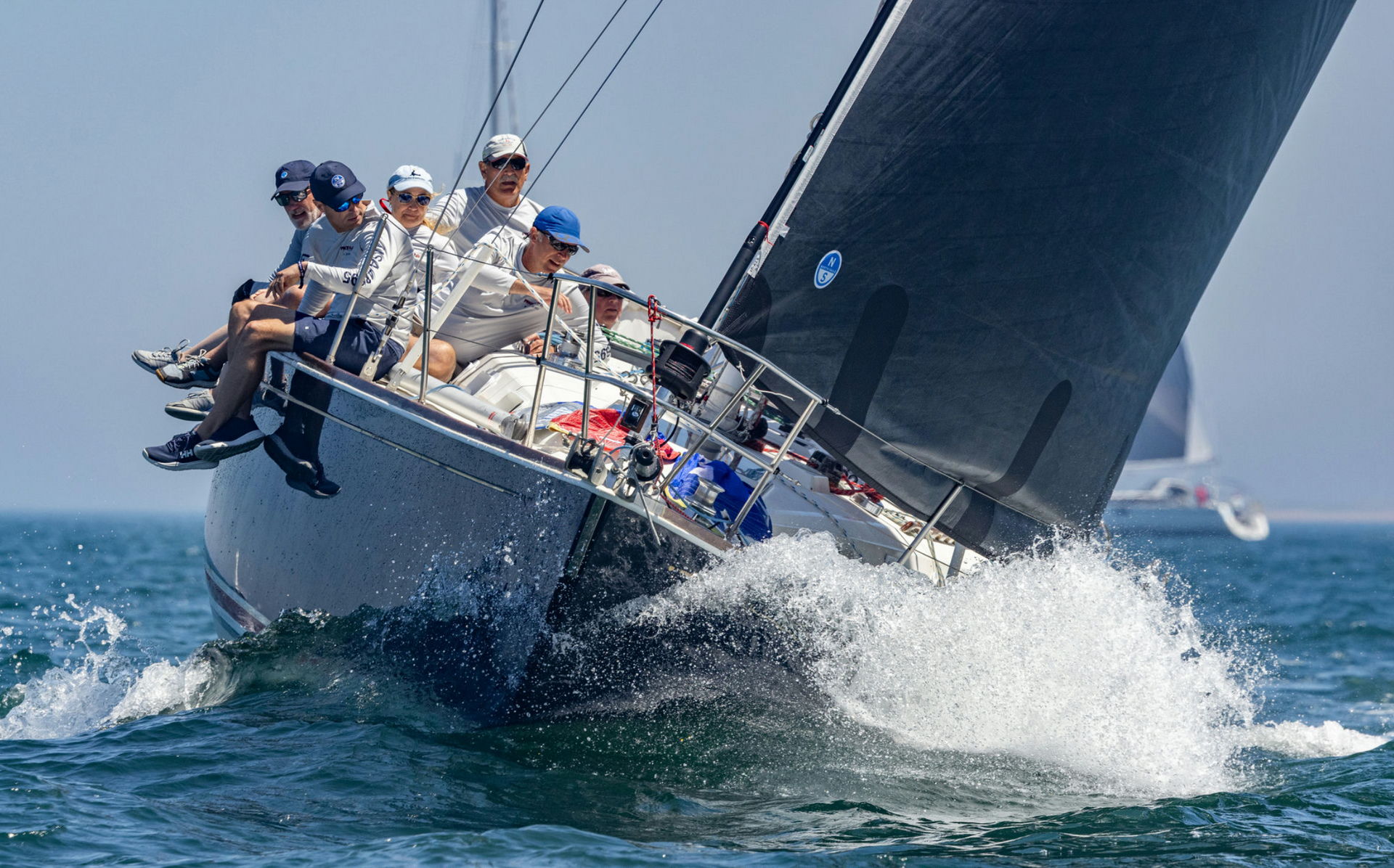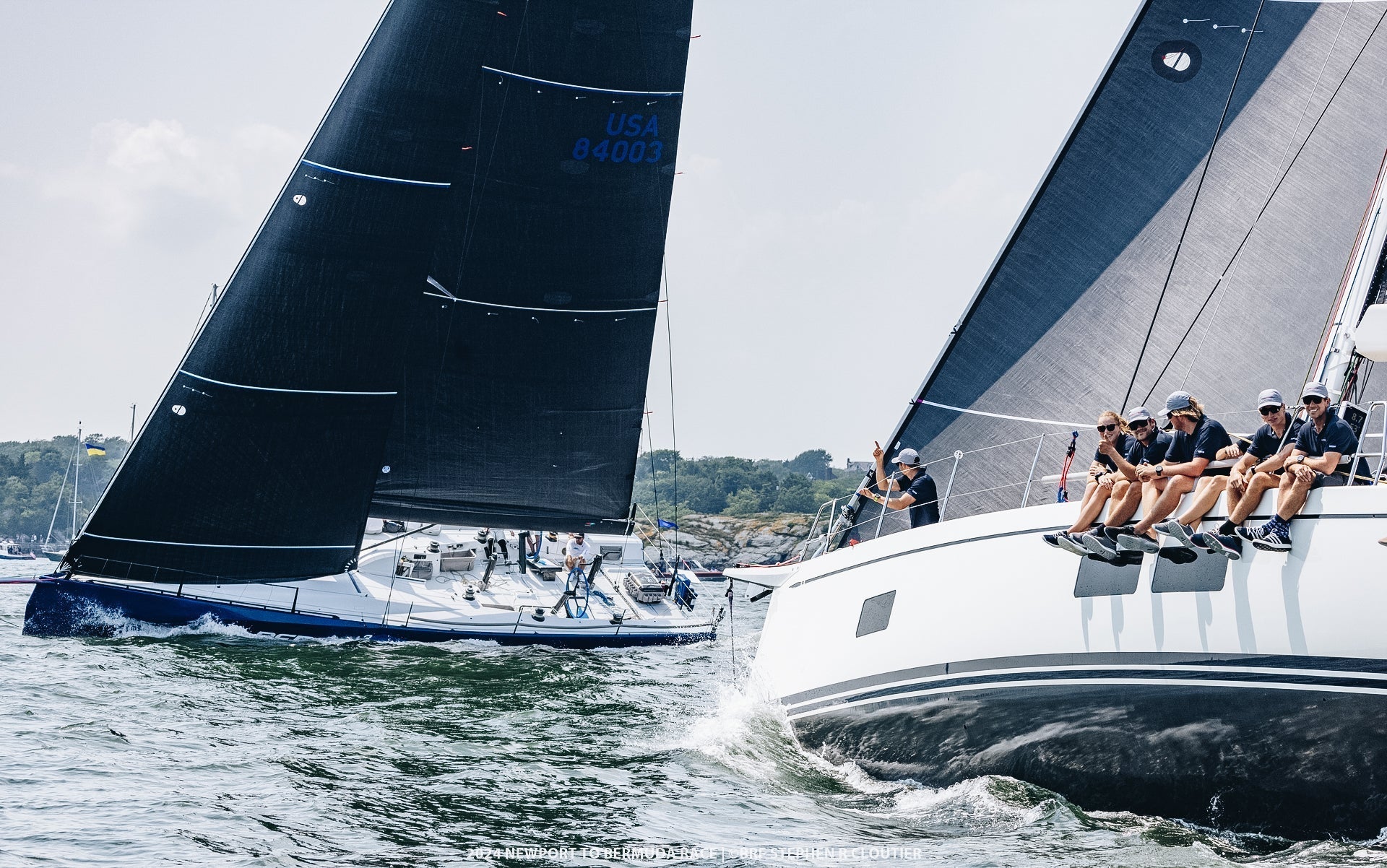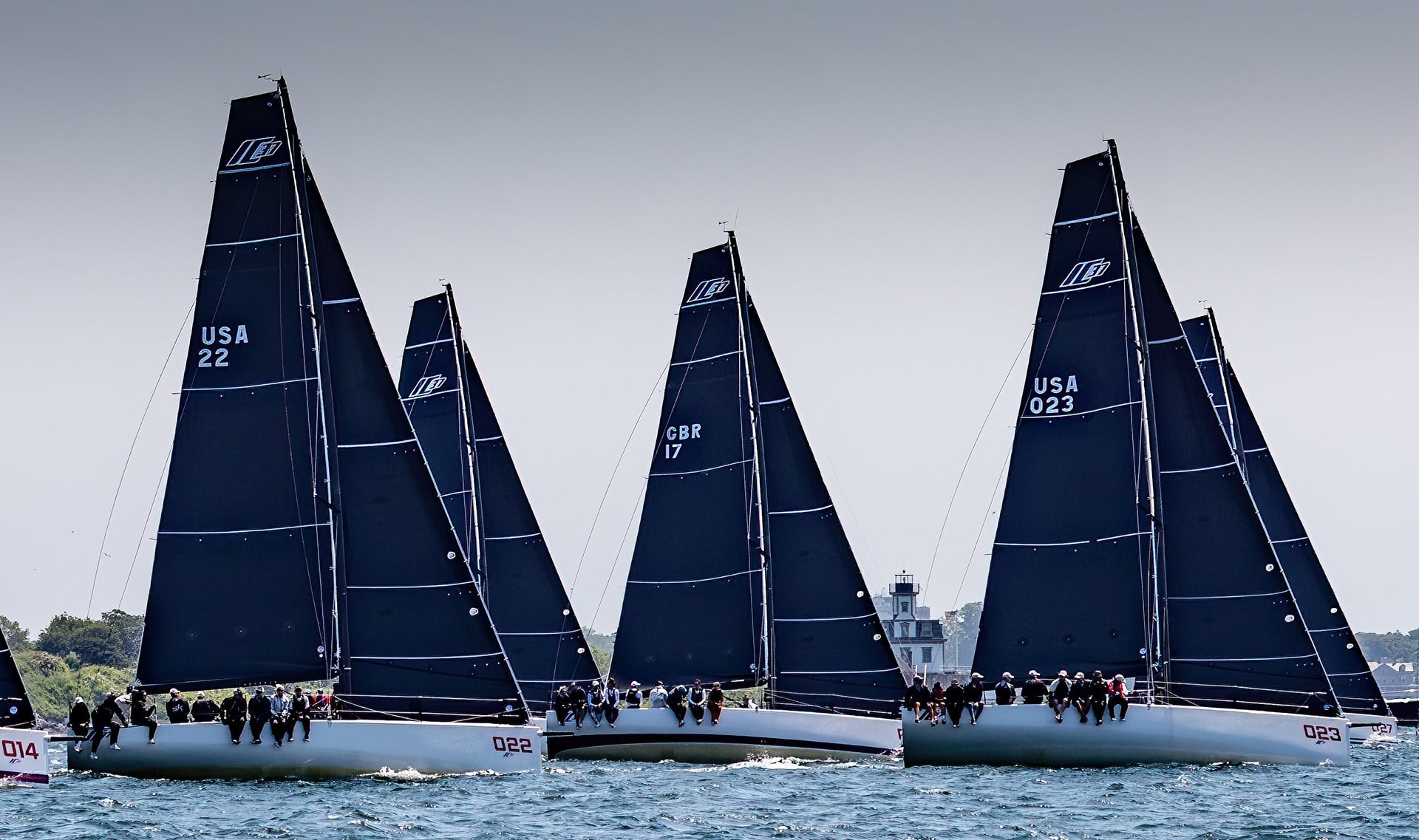ROUND NORTH ISLAND RACE
AROUND NEW ZEALAND’S NORTH ISLAND
Co-skippers Joliffe and Tucker tie for first on IRC, record the fastest overall time on PHRF and the fifth-fastest elapsed time overall.
Joliffe’s 10.8 meter Jeanneau Sun Fast 3600 showed the big boys a thing or two at the SSANZ two-handed, Round the North Island (RNI) race. North Sails consultant Josh Tucker and co-skipper Damon Joliffe sailed the the boat to the to its full potential to tie for first on IRC and record the fastest overall time on PHRF, the fifth-fastest elapsed time overall.
Tucker and Joliffe have campaigned and practiced for 18 months prior to the race. Both knew what to expect: Tucker has completed the tough, 1,200 mile race three times, and Joliffe two. On top of doing a ton of double-handed racing together, the duo also spent a ton of time in the loft making sure no stone was left unturned in terms of sails.
“We knew from previous races the best sail combinations for reaching and upwind, which is what you mostly get in this race. It was also about knowing the crossovers for each sail. We pretty much knew exactly what we should have up at any time. We made notes as we went and fine-tuned it — it wasn’t just trial and error.”
Tucker says the combination that worked best during the race was reaching with the Code Zero up, with the staysail inside.
“If it got windy we’d reef the main and have the zero and staysail up to keep the center of effort forward. The boats next to us would be going full main and small jib, but we found we could get as good a speed as the forty footers with this combination.”
They also have a 3Di reefing jib. Having a reefing jib means the team didn’t do a single jib change the entire race. ‘We could use the medium-size jib to up to about 22 knots, then we’d reef it and it could go up to 32 knots. You can use up quite a bit of time changing jibs, and a lot of crew energy, too.’
Which brings up another important factor: Tucker and Joliffe undertook an intensive fitness program before starting the race, to make sure they were in top condition.
“We did eight months of boot camp twice a week and completed a half-marathon as a team to make sure we were as fit as possible,’ says Tucker. ‘There’s no point having the best sails if you don’t have the energy to use them properly!”
Richard Bicknell, from North Sails in New Zealand, did three-quarters of the RNI on canting Elliott 50 Ran Tan II, with owner Brian Petersen, before having to travel overseas to sail in a J-Class regatta. Ran Tan finished first in line honors on every leg, ahead of IRC 52 Miss Scarlet, but was ineligible for the overall prize because of the change of crew.
“It was my third RNI and Brian’s second, so we knew that the biggest influence on winning the race was consistency, finishing each leg as fast as possible with minimal downtime. It sounds obvious, but it is easy to lose two or more hours through small problems,” Bicknell said.
In Ran Tan’s sail wardrobe were a new North 3Di main and headsail — a number one headsail which could be reefed to a number three. They also had a furling J4 that sets back from the forestay, a North paneled sail with a locking staysail halyard; a NorLon A4, a fractional code zero on a roller furler, an A7 blast runner, an A2 cut down TP52 sail, a storm jib and trysail. “Being one of the line-honor contenders, we knew that would also mean any wind holes or transitions onboard would allow the back of the fleet to catch up to us,” Bicknell says. ‘That happened a lot — we were really pushed on the second leg into Wellington and only just managed to hang in there.”
North Sails New Zealand also supplied sails for around half of the rest of the fleet, including Shaw 40 “Blink”, which had a new 3Di main and reefing jib for the race; Stewart 34 “Pahi”, which was tweaked up with a push to fly asymmetric as well as a near full inventory of new sails; and Ross 40 “Marshall Law” and Elliott 1050 “Spearhead“, which both sported 3DL inventory.
Roger Hall from North Sails’ Bay of Islands loft traveled with the fleet to provide onshore repair services at each stopover location. North Sails additionally set up a temporary loft in Napier to work with the Wellington sales team, Todd Olson and Dave Molen.


